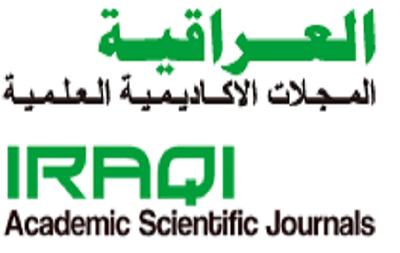The extent of the possibility of applying artificial intelligence in the faculties and departments of physical education in Palestinian universities
Main Article Content
Abstract
The aim of the research was to identify the extent to which artificial intelligence can be applied in faculties and departments of physical education in Palestinian universities from the point of view of faculty members. The researcher used the descriptive analytical approach. The study was conducted on a simple random stratified sample consisting of (40) male and female lecturers, representing (50%) of the study population. To collect data, the researcher used the Quralah scale (2022) to measure the extent to which artificial intelligence can be employed, which included (40) paragraphs distributed over four axes. The results of the study showed that the uses of artificial intelligence in Palestinian universities and colleges, especially in faculties and departments of physical education, have become an urgent and important topic, as the study sample showed average responses in this regard. The researcher recommends the necessity of holding training courses for faculty members in faculties and departments of physical education on the use of artificial intelligence techniques in university education. Keywords: Artificial intelligence; Education; Physical education; Palestinian universities.
Article Details

This work is licensed under a Creative Commons Attribution-NonCommercial 4.0 International License.
References
Abdullah, A. J. A. (2024). Obstacles to the application of artificial intelligence systems in colleges of physical education and sports sciences in Iraq. Journal of Studies and Researches of Sport Education, 34(4). https://doi.org/https://doi.org/10.55998/jsrse.v34i4.815
Abualia, M. (2022). Academic Optimism and Its Relationship to Learning Motivation among Physical Education Students at Palestine Technical University-Kadoorie. Palestine Technical University Research Journal, 10(3), 46–60.
Al- Hwayan, E. (2024). Challenges of applying artificial intelligence systems in the faculties of sports Science in jordanian universities from the viewpoint of faculty members [Dissert Educational Sciences].
AL- Mula, f. (2022). Artificial intelligence in the sports field: Excellence for Sports Consulting. Al-Ayam Journal.
Al-Dariwish, A. bin A. (2020). The degree of e-Learning utilization by faculty members at king saud university from the perspective of graduate students and alumni. Journal of the Association of Arab Universities for Higher Education Research, 40(2).
Al-Muqeeti, S. (2021). The reality of employing artificial intelligence and its relationship to the quality of performance of jordanian universities from the faculty’s perspectives. Association of Universities Journal for Research in Higher Education, 42(2), 337–358.
Al-Qaralleh, F. (2022). The extent of the possibilities of applying artificial intelligence in physical education faculties in jordanian universities from the point of view of the faculty members [Unpublished master s thesis]. Muata University.
AL-Shaer, I. (2024). An analytical study of the reality of artificial intelligence applications in selected courses at the faculty of physical education. Journal of Sports Science Applications, 120(2), 255–276.
Ameer, S.-A., & Abdel Hamid, A. (2023). Obstacles to the use of artificial intelligence systems in handball education academies in Damietta Governorate, published research. Journal of Physical Education Sciences and Arts, 64(3), 734–763.
Araújo, D., Couceiro, M., Seifert, L., Sarmento, H., & Davids, K. (2021). Artificial Intelligence in Sport Performance Analysis. Routledge. https://doi.org/10.4324/9781003163589
Bittencourt, N. F. N., Meeuwisse, W. H., Mendonça, L. D., Nettel-Aguirre, A., Ocarino, J. M., & Fonseca, S. T. (2016). Complex systems approach for sports injuries: moving from risk factor identification to injury pattern recognition—narrative review and new concept. British Journal of Sports Medicine, 50(21), 1309–1314. https://doi.org/10.1136/bjsports-2015-095850
Borgen. (2016). Artificial intelligence to improve education challenges. International Journal of Advanced & Innovative Technology (IJEIT), 2(6), 10–13.
Florea, A. M., & Radu, S. (2019). Artificial Intelligence and Education. 2019 22nd International Conference on Control Systems and Computer Science (CSCS), 381–382. https://doi.org/10.1109/CSCS.2019.00069
Ghanem, A. M. (2020). Artificial Intelligence: A New Revolution in Contemporary Management (p. 17). Modern Library for Publishing and Distribution.
Goksel, N., & Bozkurt, A. (2019). Artificial intelligence in education: Current insights and future perspectives. In Handbook of Research on Learning in the Age of Transhumanism (pp. 224–236). IGI Global. https://doi.org/DOI:10.4018/978-1-5225-8431-5.ch014
Hamad, S. H., Saad, H. M., Agam, B. I., & Farhan, M. K. (2024). THE EFFECT OF VISUAL TRACKING EXERCISES ON SOME MOVEMENT ABILITIES AND THE SKILL OF DEFENDING THE COURT IN VOLLEYBALL FOR STUDENTS. Proximus Journal of Sports Science and Physical Education, 1(7), 77–83.
Hinojo-Lucena, F.-J., Aznar-Díaz, I., Cáceres-Reche, M.-P., & Romero-Rodríguez, J.-M. (2019). Artificial Intelligence in Higher Education: A Bibliometric Study on its Impact in the Scientific Literature. Education Sciences, 9(1), 51. https://doi.org/10.3390/educsci9010051
Ilkka, T. (2018). The impact of artificial intelligence on learning, teaching, and education. European Union. https://hdl.handle.net/20.500.12799/6021
Joshi, S., Rambola, R. K., & Churi, P. (2021). Evaluating Artificial Intelligence in Education for Next Generation. Journal of Physics: Conference Series, 1714(1), 012039. https://doi.org/10.1088/1742-6596/1714/1/012039
Khalaf, S. S. (2023). The Role of Artificial Intelligence Applications in Developing Educational and Pedagogical Skills in the Arab World and Their Impact on Traditional Education Systems. Al-Farahidi Literature Journal, 15(52), 327–351.
Lee, H. S., & Lee, J. (2021). Applying Artificial Intelligence in Physical Education and Future Perspectives. Sustainability, 13(1), 351. https://doi.org/10.3390/su13010351
Luo, D. (2018). Guide teaching system based on artificial intelligence.
Malik, G., Tayal, D. K., & Vij, S. (2019). An analysis of the role of artificial intelligence in education and teaching. Recent Findings in Intelligent Computing Techniques: Proceedings of the 5th ICACNI 2017, Volume 1, 407–417.
Mohammed, A., Ali, R., & Alharbi, A. A. B. (2021). The reality of using artificial intelligence techniques in teacher preparation programs in light of the opinions of faculty members: A Case Study in Saudi Qassim University. Multicultural Education, 7(1), 5–17. https://doi.org/10.5281/zenodo.4410582
Mu, P. (2019). Research on artificial intelligence education and its value orientation. 1st International Education Technology and Research Conference (IETRC 2019), China, Retrieved from Https://Webofproceedings. Org/Proceedings_series/ESSP/IETRC, 202019.
Musa, A., & Bilal, A. (2019). Artificial intelligence. The Arab Group.
Nadimpalli, M. (2017). Artificial intelligence risks and benefits. International Journal of Innovative Research in Science, Engineering and Technology, 6(6).
Nasief, G. (2024). The sportsmanship level of the Palestinian national football team players. Journal of Studies and Researches of Sport Education, 34(3). https://doi.org/DOI:https://doi.org/10.55998/jsrse.v34i3.716
Odeh, A. Y., Shabib, S. S., Ghazi, M. A., & Mohammed, L. H. (2024). Developing physical education curricula in the age of artificial intelligence. Journal of Sports Education Studies and Research, 34(3), 37–56. DOI: https://doi.org/10.55998/jsrse.v34i3.687
Oudah, A., Abbood, R., Shabib, S., Aldewan, L., & Ghazi, M. (2024). Developing Physical Education Curricula Within the Framework of Digital Transformation to Achieve Sustainable Development. Teacher Education and Curriculum Studies, 9(3), 86–102. https://doi.org/10.11648/j.tecs.20240903.15
Tayyem, D. H. M., Shami, D. S., Rajeh, H., & Aghbar, N. M. (2022). The Degree Possession of Governmental Basic Schools’ Principals in Nablus Directorate Skills Employing the Artificial Intelligence in Administrative Work from their Own Perspective. International Multilingual Academic Journal, 1(1). https://aasrc.org/aasrj/index.php/imaj/article/view/2144
Yang, K., Li, J., & Xu, M. (2017). Artificial Intelligence computer assisted instruction system for basketball training (ICAI) characteristics and performance analysis. Electronic Devices, 6(1), 12–17.





 IASJ
IASJ CC-BY-4.0
CC-BY-4.0 turnitin
turnitin ISSN
ISSN DOAJ
DOAJ Crossref
Crossref GoogleScholar
GoogleScholar Orcid
Orcid